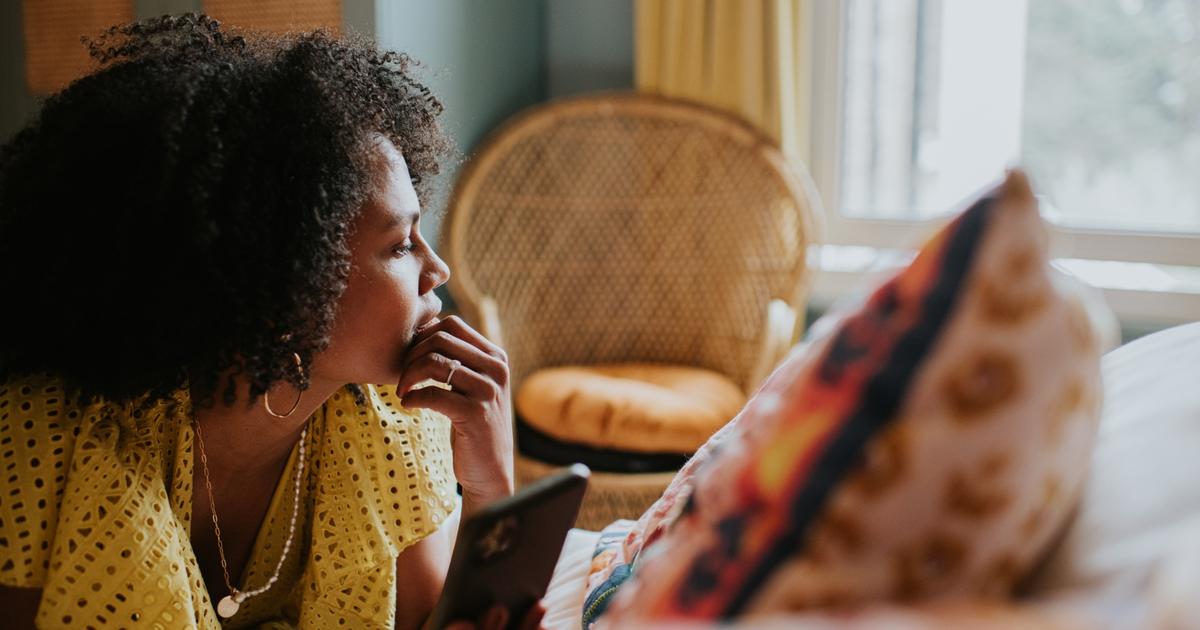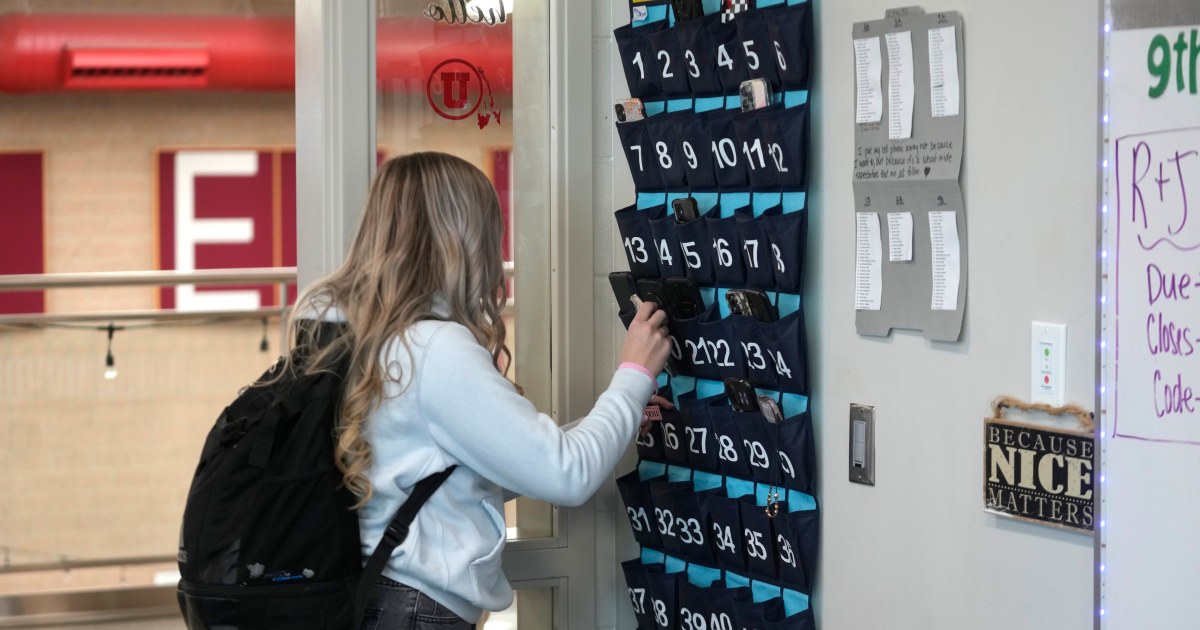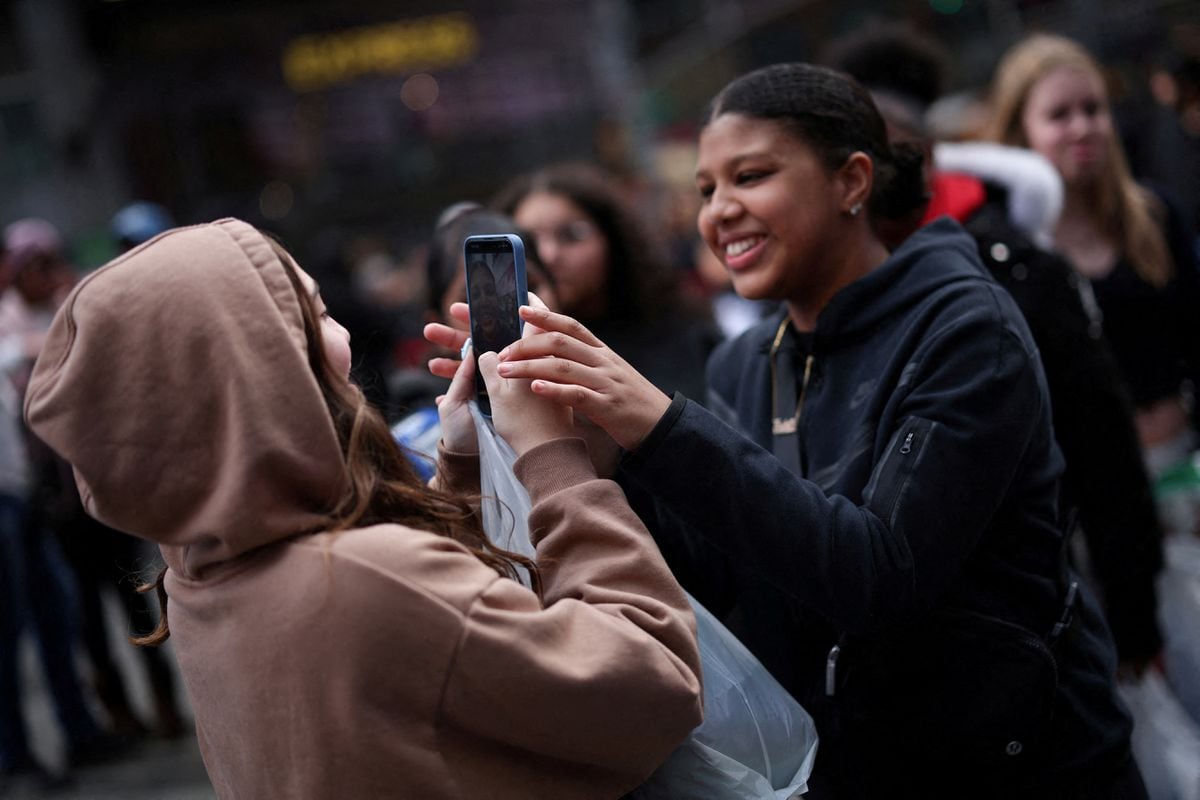Without social networks, Selena Gomez, Taylor Swift, Stromae, Bella Hadid or Millie Bobby Brown would never have acquired such notoriety.
However, in recent years, despite the undeniable contribution to their careers and their advertising contracts from online self-branding (self-promotion), everyone has decided at one time or another to leave social networks.
In question: the hateful comments (on their physique, their choices, their speeches…), the desire to refocus on their creation, the feeling of wasted time or the accentuation of their anxiety disorders.
Read alsoHello sadness: investigation into the malaise of influencers
VIP in burnout
Hero of
Spider-Man
and companion of Zendaya, Tom Holland thus announced in August to his 67 million followers that he was disconnecting.
“I find Instagram and Twitter too compelling, too overwhelming.
I get overwhelmed and spin when I read about myself.
It affects my mental health,” he explained in an Instagram post with 27 million views.
In France, Lomepal or Bigflo and Oli decided to disconnect after depressive episodes.
A year ago, Lena Situations also gave herself a break on Twitter despite her large million subscribers: "I've been in the
trending topics for months now.
on Twitter (understand: in the topics that are the most discussed).
These are debates about my couple, my physique, my curly hair, my financial situation, the neckline of my dresses… Or just the fact that I am a girl.
It is indeed difficult to protect oneself against the flood of insults and judgments.
No doubt this is also one of the reasons that led Léa Seydoux, Vanessa Paradis, Kristen Stewart, George Clooney or Jodie Foster not to have an account.
But, unlike their elders, the majority of Gen Z stars are built on social media buzz.
To the point of having given them confidence in the tool, of not being sufficiently wary of it sometimes, of forgetting temperance too.
In video, a short film illustrates the obsession of young people for social networks
Lack and addiction
If the only virtual addiction recognized by the WHO is that of online video games, the possibility that it applies to social networks is thus regularly questioned.
Lack and addiction are part of the daily life of many users, anonymous or famous, who suddenly collapse and detoxify.
Psychologist, author of
(a)social networks
(1) and founder of the Observatory of digital worlds in the human sciences, Michael Stora explains: “Social network burnout exists for influencers caught in the trap of over-representing themselves, anonymous people who do not do not feel up to the ideals displayed, celebrities who are exposed to criticism outside the promotional framework that preserved their narcissistic fragility... There is also for some users the fear of missing out on something that incites abuse, what we called FOMO (
Fear of Missing Out:
fear of missing something).
But whatever the profile, social networks can become toxic when people have pre-existing weaknesses.
The digital world can become toxic when you have pre-existing weaknesses
Michael Stora, psychologist
Voluntary servitude
Suffering from anxiety disorders for years, actor Jonah Hill has thus moved away from the networks so as not to sink.
Like Selena Gomez who, bipolar, decided to entrust the management of her networks to her assistants, a few years ago.
For Guy Birenbaum, journalist on Europe 1 then France Info and author of
You missed me.
History of a French depression
(2), Twitter also acts as an accelerator of collapse.
“On the other hand, I do not believe in the burn-out of social networks.
You don't get depressed because you spend too much time on Twitter.
The hyperconnection is a symptom: it is not the cause, it is the consequence of a deeper malaise.
For a good ten years, this
workaholic
was on standby from 5 a.m. to midnight, vibrating for the slightest notification, to the detriment of his social, friendly and family life.
“In
Little manual for training your smartphone,
I had theorized that the smartphone was a voluntary servitude.
We want to know everything, see everything and show everything, but behind all that hides a disease called narcissism, of which I was a victim, like many people who work in the media.
On the air, I was daily exposed to adrenaline rushes that were multiplied tenfold by social networks.
Hyperconnection is a symptom: it is not the cause, it is the consequence of a deeper malaise
Guy Birenbaum, journalist
Likes
and
vanity metrics
Professor at Sciences Po and author of
How to get out of the influence of social networks
(3), sociologist Dominique Boullier confirms.
“Small circles of recognition have always existed, through groups of teenagers for example, but on a small scale.
Social networks have given everyone the opportunity to win a quarter of an hour of fame, the chance to be recognized in a community.
The
likes
and other small measurements at the bottom of our posts, called
vanity metrics
, provide endorphins.
The era has entered the era of the “Mirror, my beautiful mirror”.
Your self-esteem is conditioned by what you are referred to on the networks
Dominique Boullier, sociologist
But this frantic race for good reputation and fame can obviously make your online life more dependent than your real life.
“When your circle of belonging changes, your self-esteem is conditioned by what you are sent back to the networks.
This phenomenon is amplified for celebrities whose digital reputation, which can build or break their career, is a professional issue,” adds the sociologist.
The tyranny of algorithms
But dependence can also take root elsewhere, in the weight of society's gaze, for example.
“It has almost become a social marker to have the reference, explains Jean-Baptiste Bourgeois, director of strategy at We Are Social, an advertising agency specializing in social networks.
It's a new form of algorithm-driven tyranny."
In France, the average daily time spent on social networks is 1 hour 46 minutes. It is constantly increasing.
In the past, on Instagram, the message that you've seen your entire feed would pop up quickly.
Today, the algorithms have been modified to push content that you did not follow, to encourage you to scroll: they solicit you according to your tastes and your behavior or, on the contrary, play the surprise, the wow effect of a seductive video .
“Without denying the free will of users, the responsibility of platforms and OSes is at stake in overconsumption and its negative effects.
The way in which social networks are developed pushes people to abuse them without even realizing it”, summarizes Jean-Baptiste Bourgeois.
The average tiktokeur thus spends 19.6 hours per month on the platform (21 in France).
“The standard meter is the time spent, the
watchtime.
This is what enhances the products.
Since the TikTok explosion, everyone has been trying to line up.
This is in particular the reason why the social media experience has become holistic: it allows you to have fun, to follow the news, to go shopping, to have access to a search bar…”
The way social networks are developed pushes people to abuse them without even realizing it
Jean-Baptiste Bourgeois, Strategy Director at We Are Social
Illusory happiness
According to the We Are Social expert, Google is concerned about the power of the “search” tab in applications, which has become the first instinct of young people.
The giant has thus lost 0.8% of attendance this year, proving that the shift has indeed begun.
As for the smartphone, it is literally fetishized: the most addicted are even affected by nomophobia, a term designating the fear of being separated from one's laptop or of not being able to use it.
“Observe people on public transport who, staring into space, suddenly pull out their cellphones to avoid thinking.
Social networks have a distracting power: they avoid coming face to face with yourself, deciphers Michael Stora.
But they sell an idea of illusory happiness and can spin those who have a hyperdemand vis-à-vis
themselves and which no longer bear comparison.
Conversely, those who find a form of fulfillment in real life do better in the face of injunctions.
Social networks have a distracting power: they avoid coming face to face with yourself
Michael Stora, sociologist
Social pressure
To resist, self-mockery is also life-saving, especially for stars, the chosen targets of
haters
.
“Pierre Niney's humor allows him, for example, to use social networks with a lot of mischief, to ward off attacks as much as possible.
It is the self-irony, the snub to the image of the ideal, which allows us to have the necessary distance.
But not everyone has this ability,” comments the psychologist.
Not to mention that at the slightest misstep, it's a whole community that fights.
“There is a collective social functioning on social networks that encourages judgment, the taking of a position, adds sociologist Dominique Boullier.
Being the scapegoat at school is hard enough, but the
Last year, the
Wall Street Journal
obtained an internal survey from Meta (web giant, owner of Facebook and Instagram) identifying the psychological damage of Instagram on teenage girls: 32% declared that their complexes were amplified by the platform.
6% attributed their suicidal desires to the network.
Too much social pressure, images of perfection, isolation.
Moreover, although they do not always have the tools to fight against it, young people are more aware of the dangers of networks.
In France, 16-18 year olds are 1.7 times more likely than the average French person to worry about their social media overconsumption and to identify their smartphone as a source of anxiety.
“The older ones, who have known life without digital, can sometimes suffer from what has been lost along the way, explains Dominique Boullier.
The younger generation is also capable of vigilance but, in general, seniors are less addicted and fragile, because they use networks more as a tool of communication with their loved ones and a means of sharing the family album.
Not as an object of valuation or comparison.
Digital detox
What solutions should be recommended when the harmful effects outweigh the beneficial uses?
Take a digital vacation?
Become a follower of ROMO (
Relief of Missing Out:
"relief of having missed something") which, in opposition to FOMO, invites disconnection to fight against infobesity and escape anxiety-provoking news?
To avoid this type of rupture, the platforms themselves have found the solution, which seems ironic (and clever).
In July, TikTok implemented a “screen time breaks” feature to preserve the user beyond a time that he had previously defined.
Android did the same.
“There is obviously a form of opportunism in this decision, explains Jean-Baptiste Bourgeois.
But it's also a way to preserve your product by ensuring that the bubble doesn't burst, that users don't get bored..."
Still followed by 175,000 twittos, but a master in the art of digital detox, Guy Birenbaum also has simple tips: deactivate notifications, "a ba-ba that changes everything", not taking out your phone during meals between friends, cut it early because "not answering a call is not being tempted to go on Twitter", no longer reading hateful comments, writing by hand, and above all reading books to relearn how to focus your Warning.
“On a more global scale, there should also be digital education in the same way as there should be real image education.
We are not up to what our children are facing.
Michael Stora advocates screen sharing in the family unit.
“Showing a video that made you laugh to a loved one can generate a dialogue around the images and recreate a social bond.
But, it is essential to remember that if someone feels better in digital life, it is because reality is a pain for them.
It is at this level that it is necessary to treat, with a psychological follow-up.
Turning off their phone or deleting their accounts does not solve the problem.
There should also be a digital education in the same way as there should be a real education in the image
Guy Birenbaum, journalist
less and better
Moreover, after their digital detox, the stars return to it.
But, once the risks are integrated, behaviors change.
Rihanna or Beyoncé now only publish about their professional news, thus separating public and intimate life, digital and real life.
And, since his return, Tom Holland has posted very little.
“Some have learned from their excess and, even if they know they can't get over it, they choose better what they share, only when an album or a film demands it.
This is how they gain their time in the minds of the public and the media.”
To be consumed, but in moderation.
(1)
(a)Social Networks
, by Michael Stora, Éditions Larousse.
(2)
I missed you.
History of a French depression
, by Guy Birenbaum, Éditions Les Arènes.
(3)
How to get out of the grip of social networks
, by Dominique Boullier, Éditions Le passeur.







